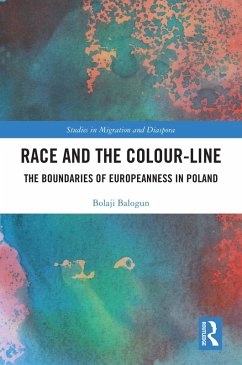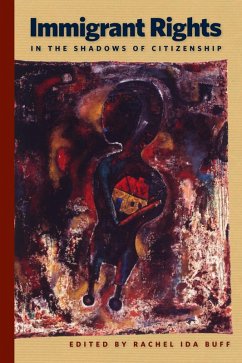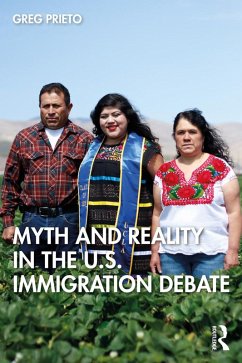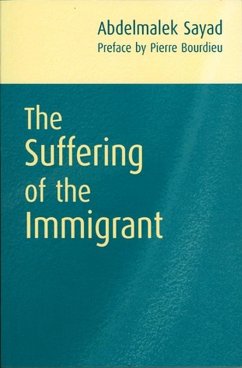
The New Immigrant Whiteness (eBook, ePUB)
Race, Neoliberalism, and Post-Soviet Migration to the United States
Versandkostenfrei!
Sofort per Download lieferbar
22,95 €
inkl. MwSt.
Weitere Ausgaben:

PAYBACK Punkte
11 °P sammeln!
Explores the racialization of immigrants from post-Soviet states and the nuances of citizenship for this new diaspora. Mapping representations of post-1980s immigration from the former Soviet Union to the United States in interviews, reality TV shows, fiction, and memoirs, Claudia Sadowski-Smith shows how this nationally and ethnically diverse group is associated with idealized accounts of the assimilation and upward mobility of early twentieth-century arrivals from Europe. As it traces the contributions of historical Eastern European migration to the emergence of a white racial identity that ...
Explores the racialization of immigrants from post-Soviet states and the nuances of citizenship for this new diaspora.
Mapping representations of post-1980s immigration from the former Soviet Union to the United States in interviews, reality TV shows, fiction, and memoirs, Claudia Sadowski-Smith shows how this nationally and ethnically diverse group is associated with idealized accounts of the assimilation and upward mobility of early twentieth-century arrivals from Europe. As it traces the contributions of historical Eastern European migration to the emergence of a white racial identity that continues to provide privileges to many post-Soviet migrants, the book places the post-USSR diaspora into larger discussions about the racialization of contemporary US immigrants under neoliberal conditions.
The New Immigrant Whiteness argues that legal status on arrival--as participants in refugee, marriage, labor, and adoptive migration-- impacts post-Soviet immigrants' encounters with growing socioeconomic inequalities and tightened immigration restrictions, as well as their attempts to construct transnational identities. The book examines how their perceived whiteness exposes post-Soviet family migrants to heightened expectations of assimilation, explores undocumented migration from the former Soviet Union, analyzes post-USSR immigrants' attitudes toward anti-immigration laws that target Latina/os, and considers similarities between post-Soviet and Asian immigrants in their association with notions of upward immigrant mobility. A compelling and timely volume, The New Immigrant Whiteness offers a fresh perspective on race and immigration in the United States today.
Mapping representations of post-1980s immigration from the former Soviet Union to the United States in interviews, reality TV shows, fiction, and memoirs, Claudia Sadowski-Smith shows how this nationally and ethnically diverse group is associated with idealized accounts of the assimilation and upward mobility of early twentieth-century arrivals from Europe. As it traces the contributions of historical Eastern European migration to the emergence of a white racial identity that continues to provide privileges to many post-Soviet migrants, the book places the post-USSR diaspora into larger discussions about the racialization of contemporary US immigrants under neoliberal conditions.
The New Immigrant Whiteness argues that legal status on arrival--as participants in refugee, marriage, labor, and adoptive migration-- impacts post-Soviet immigrants' encounters with growing socioeconomic inequalities and tightened immigration restrictions, as well as their attempts to construct transnational identities. The book examines how their perceived whiteness exposes post-Soviet family migrants to heightened expectations of assimilation, explores undocumented migration from the former Soviet Union, analyzes post-USSR immigrants' attitudes toward anti-immigration laws that target Latina/os, and considers similarities between post-Soviet and Asian immigrants in their association with notions of upward immigrant mobility. A compelling and timely volume, The New Immigrant Whiteness offers a fresh perspective on race and immigration in the United States today.
Dieser Download kann aus rechtlichen Gründen nur mit Rechnungsadresse in A, D ausgeliefert werden.













